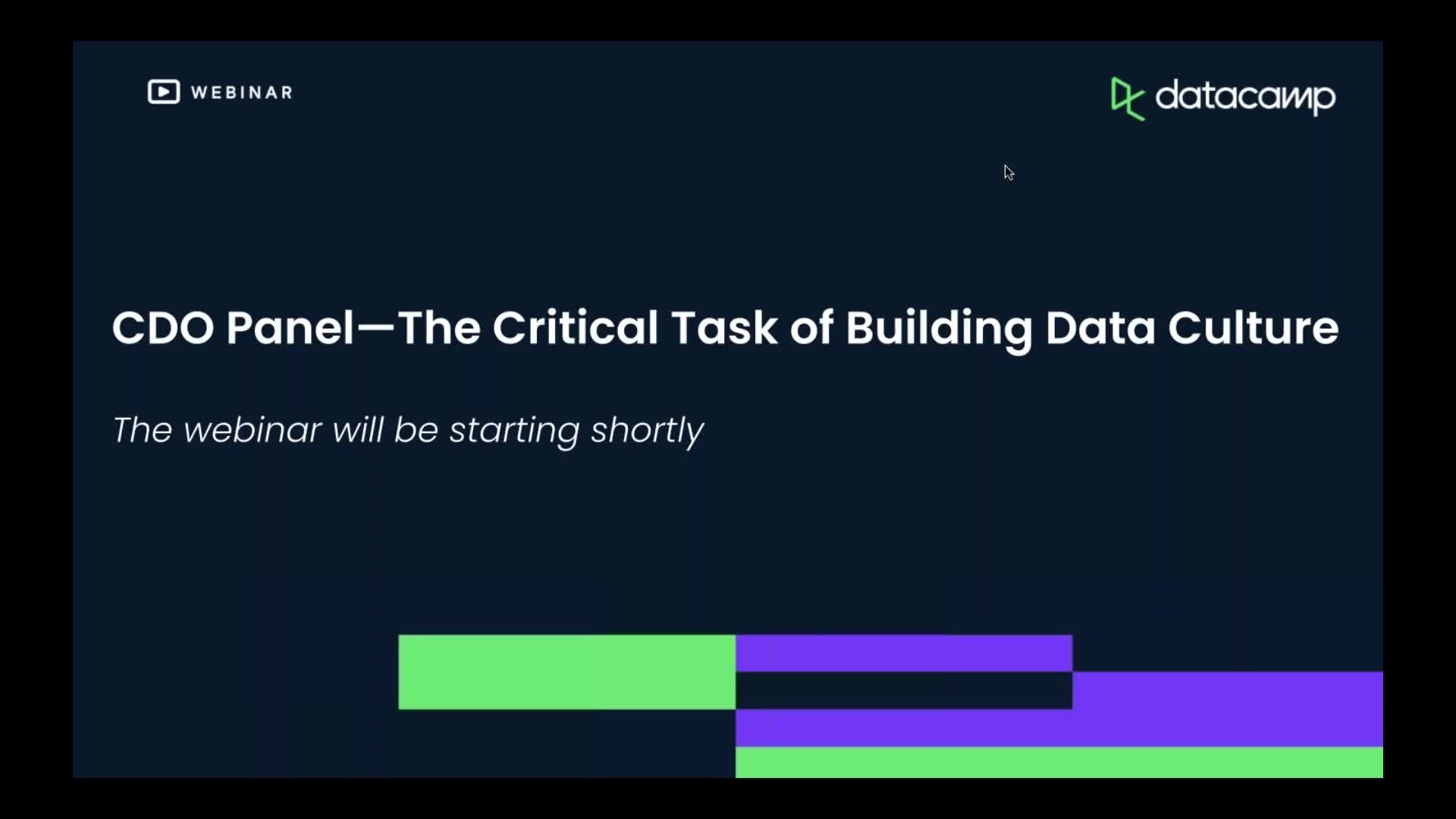Pular para o conteúdo principalSaiba Mais





Falantes


Mai AlOwaish
Chief Data & Innovation Officer at the Gulf Bank of Kuwait

Eddy Farhat
Chief Data Officer of Zand
Treinar 2 ou mais pessoas?
Obtenha acesso à biblioteca completa do DataCamp, com relatórios, atribuições, projetos e muito mais centralizadosRelacionado
webinar
Building Data Cultures
Learn how to build a data culture from Allianz Benelux Regional CDO Sutaman T Mwebinar
Building Data Literacy in Federal Agencies
The importance of building data culture and skills in government agencies.webinar
The People & Organization Components of Data Maturity
Discover how to accelerate data literacy and culture within an organization.webinar
Creating Learning Cultures with Kelly Palmer
How to build a learning culture that will be a foundation for learning programs.webinar
Building Data Fluency in an Organization
Dive into the value of data fluency in an organization and how to achieve it.webinar
How Learning Communities Can Drive a Data Culture
How Learning Communities Can Drive a Data CultureJoin 5000+ companies and 80% of the Fortune 1000 who use DataCamp to upskill their teams.
Loved by thousands of companies
